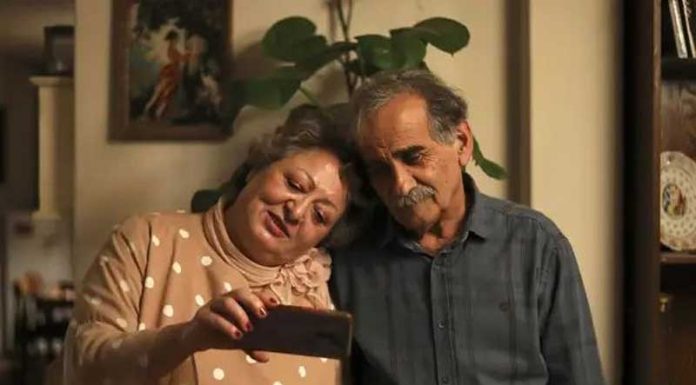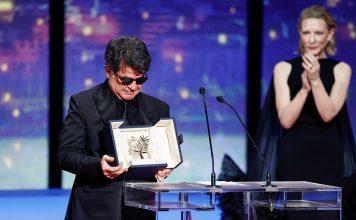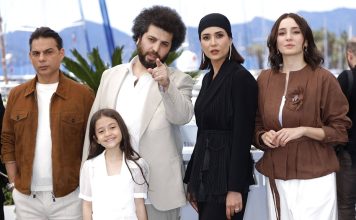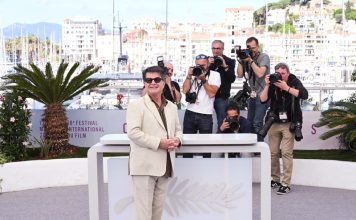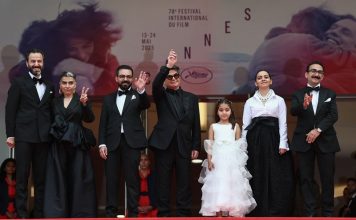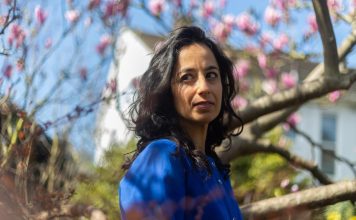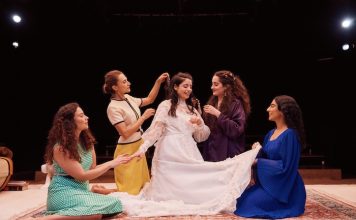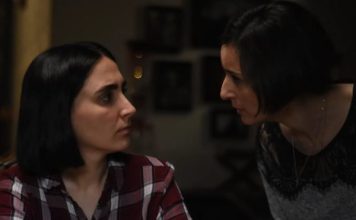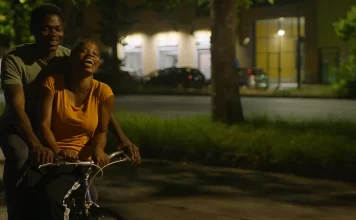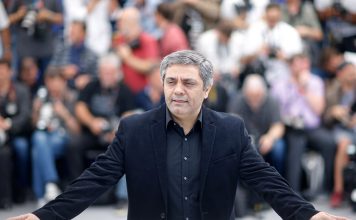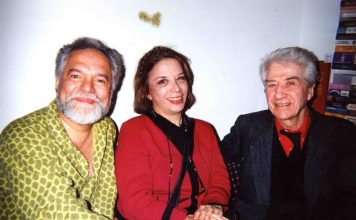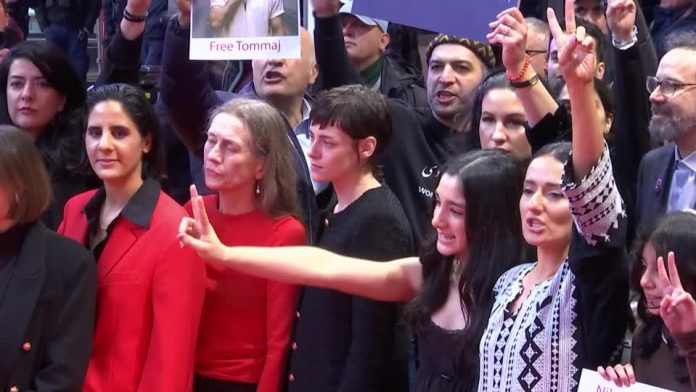
A movie by two Iranian directors currently facing a travel ban is in competition for the top prize at the Berlin Film Festival, or Berlinale, which is due to be held from Feb. 15 to 24 in the German capital.
“My Favorite Cake” is co-directed by Behtash Sanaeeha and Maryam Moghaddam. The film is an Iranian-French-German-Swedish coproduction and stars veteran Iranian actors Lily Farhadpour and Esmail Mehrabi. It tells the story of a 70-year-old woman who courageously pursues her dreams in a country that severely curtails women’s rights.
[aesop_image img=”https://kayhanlife.com/wp-content/uploads/2024/01/behtash-sanaeeha-maryam-moghaddam.jpg” panorama=”off” credit=”KL./” align=”center” lightbox=”on” captionsrc=”custom” caption=”Behtash Sanaeeha (R) and Maryam Moghaddam (L). ” captionposition=”left” revealfx=”off” overlay_revealfx=”off”]
On Oct. 3, Iranian authorities stopped Sanaeeha and Moghaddam from boarding a flight to France, where they planned to complete the post-production phase of “My Favorite Cake.”
Authorities seized Mr. Sanaeeha and Ms. Moghaddam’s passports, accusing them of being involved in “propaganda against the state” and “acting against national security.” No court date has been set to review the charges against the two filmmakers.
The travel bans on Sanaeeha and Moghaddam prompted many international art and cultural institutions and several prominent figures in the global film industry to issue a statement on Dec. 19 urging Iran to lift all bans on Iranian artists and activists.
“We, the undersigned organizations, call on the Iranian authorities to drop all charges against film directors Behtash Sanaeeha and Maryam Moghaddam immediately,” the letter said.
“We believe that the people of Iran, along with citizens around the world, should have the opportunity to create and watch works such as Sanaeeha and Moghaddam’s films as well as those of Saeed Roustayi, read Narges Mohammadi’s reporting, listen to the music of Saman Yasin, and savor the performances of gifted Iranian actors, even if they don’t agree to wear headscarves,” the statement added.
International film festivals have prominently showcased Iranian films in recent years and only refused state-sanctioned films submitted during periods of increased censorship or the brutal crackdown of protests in Iran.
However, in such instances, Iranian filmmakers living abroad have successfully entered their works in various categories in international film festivals.
“Festivals provide a space for artistic expression and enable peaceful dialogue. They are places of encounter and exchange and contribute to international understanding,” said Carlo Chatrian, the artistic director of the Berlin Festival, at a Jan. 23 press conference, as he announced that “My Favorite Cake” was in the competition.
Seated next to Mariette Rissenbeek, the festival’s executive director, Chatrian said the actress Lily Farhadpour “plays the role of an older woman who decides to change aspects of her life and do the things that people did before the 1979 Revolution in Iran.”
Still photographs of “My Favorite Cake” appear to show the character played by Lily Farhadpour without the hijab, which is mandatory in Iran.
Sanaeeha and Moghaddam’s previous film, “Ballad of a White Cow” – which is banned in Iran — was screened at the 2021 Berlinale. It received award nominations at several international film festivals.
According to the Berlinale program, 20 feature films will compete for this year’s top prize, the Golden Bear. Moghaddam is one of nine women directors whose films will be screened at this year’s festival. There are films from 30 countries in the various competition categories.
“My Favorite Cake” will be competing against works by renowned international directors such as Olivier Assayas (French), Bruno Dumont (French), Abderrahmane Sissako (Mauritanian-born Malian), Mati Diop (French-Senegalese), Alonso Ruizpalacios (Mexican), and Hong Sang-soo (South Korean).
Alonso Ruizpalacios and Hong Sang-soo have twice won the festival’s Silver Bear.
Iranian filmmaker Aliyar Rasti’s latest film, “The Great Yawn,” is among the 15 films in the festival’s Encounter section. It is Rasti’s first feature film, starring Mohammad Aghebati, Saber Abar, Mahin Sadri, Amirhossein Hosseini, and Mehrdad Ziaie.
Other Iranian entries in the festival include Hadi Babaei’s short film “Sheep” in the Generation section; and Savnaz Alambeigi’s documentary “Maydelgo” (a French-German-Iranian coproduction) in the Generation 14Plus section. Farahnaz Sharifi’s documentary “My Stolen Planet” (a Germany-Iran coproduction) is included in the festival’s Panorama section.
Narges Kalhor’s “Shahid” (“Martyrs,” a German production) and Faraz Fesharaki’s documentary “What Did You Dream Last Night, Parajanov?” (a German production) are included in the festival’s Forum section.

